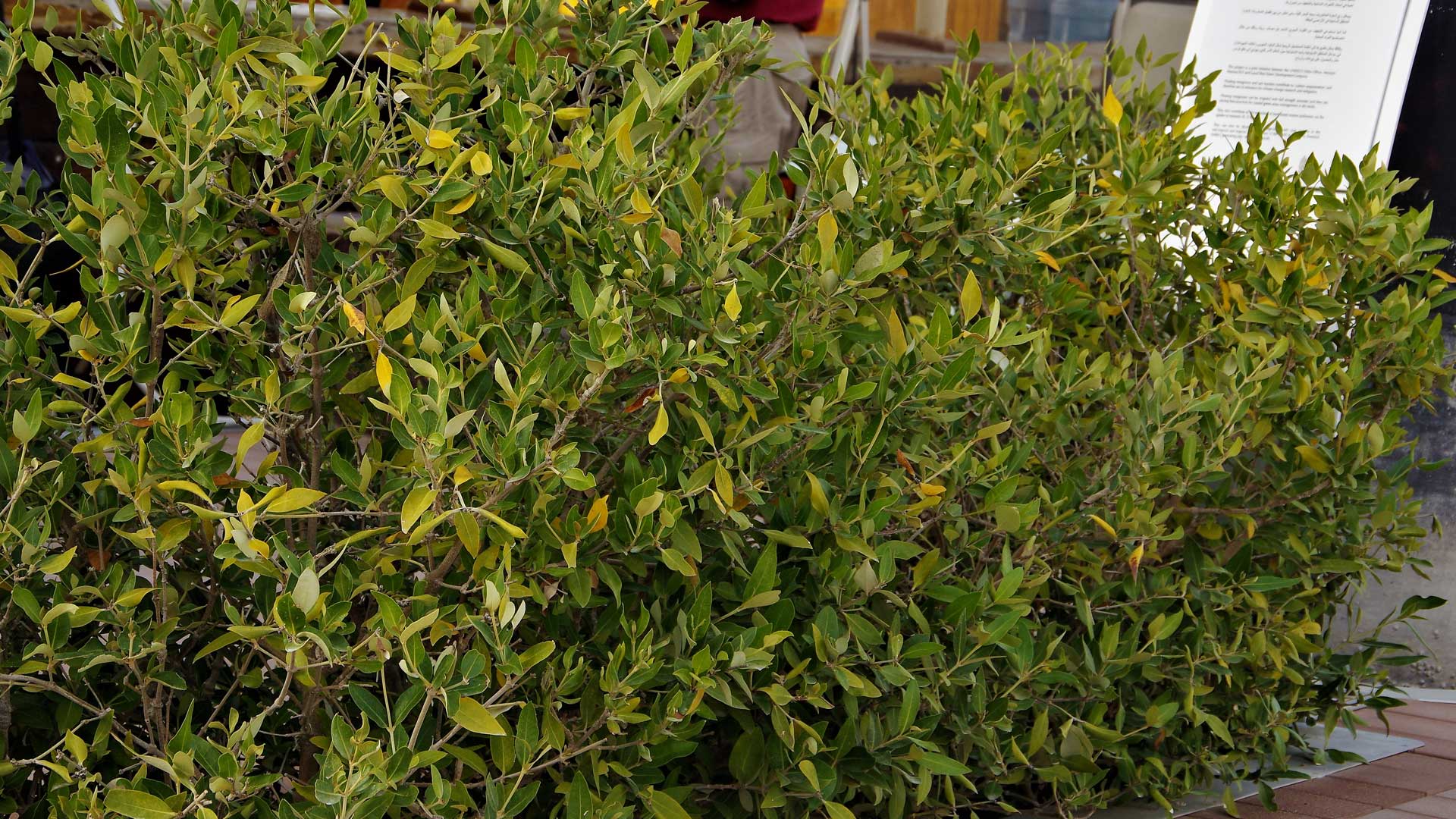Benno Böer, Andrew Dansie, Véronique Helfer, Shreya Kiran, Oleg Shipin & Martin Zimmer
The ongoing global energy crisis requires human ingenuity for the development of new forms of clean and affordable energy. Wood is a renewable form of energy. It offers an alternative to fossil fuel, and, when managed appropriately from growth to burning, offers a net-zero CO2 emission. The use of fuelwood could therefore contribute even more to climate protection than is already the case.
Our planet has limited space for the viable production of fuelwood, firstly because the remaining natural forests must be kept intact, secondly because wood-production in areas of freshwater scarcity (arid lands and deserts) is difficult or impossible, and thirdly, because terrestrial space is needed for agriculture and settlements.
Nevertheless, our oceans cover 361,000,000 km2, holding 96,5 % of the world’s water, albeit saline water, not considered suitable for silviculture. Freshwater availability is an essential precursor for forestry. Trees will not grow in the absence of freshwater, except high-salinity tolerant mangroves.
Would it be possible to try out a new form of forestry on the oceans, independent of terrestrial space and freshwater irrigation? This is a question that certainly deserves thought, scientific research, and testing.
Böer et al. (2014) provided evidence that mangrove trees can grow and produce wood in an innovative technology, floating on top of the oceans. The authors developed a small-scale model of floating mangroves. This concept, if further developed, tested and extrapolated, could potentially contribute to carbon sequestration and produce large quantities of wood-biofuel, in a new form of ocean-based forestry. Importantly, this would alleviate pressure on natural mangroves. Mangroves and their sediment can hold upto 5 times more carbon per hectare than tropical forests, providing a net carbon sink when floating mangroves are harvested to preserve shore-based mangroves. This innovative system needs to be scientifically studied in detail and properly documented. Ashley (2019), Kiran (2022) and Zimmer et al. (2022) carried out further studies, and discussions on the need for scientific research are ongoing between UNESCO, the UNSW in Sydney, the AIT in Bangkok, and ZMT in Bremen.
Studies carried out by the University of New South Wales demonstrated that floating mangroves can potentially provide sustainable water-based forestry (Ashley, 2019). Kiran (2022) further suggests an interest among local, Government, and international stakeholders in the Maldives, and that further research is required to understand potential large-scale benefits of floating mangroves to local communities.
The Asian Institute of Technology proposed to develop and test seaworthy walkable platforms consisting of numerous single platforms that can be flexibly interconnected to form extensive floating tree groves.
The Leibniz Centre for Tropical Marine Research recently expanded the concept to floating coastal ecosystems combining mangrove stands, saltmarshes and seagrass beds, and included it in a proposal on nature-based solutions for carbon sequestration.
It has already been proven that the system works at small scales (Böer et al. 2014). As a next step, it should therefore be tested at a larger scale, with the necessary scientific research, to obtain reliable scientific data to find sound answers towards the environmentally friendly and economically feasible applicability of floating mangroves.
This concept would be of special interest for Small Island Developing States (SIDS), when considering their freshwater limitations and their dependency on fossil fuel import.
This blog contribution aims at raising further awareness on floating mangroves and the need to provide funding and carry out scientific research via the establishment of a prototype, the collection, analysis, and documentation of sound scientific data on primary-productivity, carbon sequestration, uptake of land-based marine pollutants, economic feasibility, and material and design options. Floating mangroves, if further scientifically studied and developed, might indeed contribute to clean energy security and climate mitigation.
The remaining challenge is to find funding resources.
Benno Böer is the Natural Sciences Specialist of the UNESCO New Delhi Office, which covers Bangladesh, Bhutan, India, Nepal, the Maldives, and Sri Lanka.
Andrew Dansie is a Senior Lecturer in Humanitarian Engineering at the School of Civil and Environmental Engineering, University of New South Wales, Sydney, Australia.
Véronique Helfer is a mangrove ecologist working as Senior scientist at the Leibniz Centre for Tropical Marine Research (ZMT), Bremen, Germany and co-founder of fairGROVE, a not-for-profit company aiming at supporting (re-)establishment of coastal vegetated ecosystems.
Shreya Kiran is a Water Engineer and Alumni of the University of New South Wales in Sydney, Australia.
Oleg Shipin is an Adjunct Professor at the Asian Institute of Technology in Bangkok, Thailand.
Martin Zimmer is a Professor of Mangrove Ecology at the Leibniz-Centre for Marine Tropical Research (ZMT) and at the University of Bremen, and co-founder of fairGROVE, a not-for-profit company aiming at supporting (re-)establishment of coastal vegetated ecosystems.
References
Ashley, J. M. 2019. Floating Mangrove Pontoons. Bachelor of Engineering (Environmental Engineering) Honours, University of New South Wales. Böer, B. C. Huot & M. Sutcliffe, 2014: Floating mangroves: The solution to reduce atmospheric carbon levels and land-based marine pollution? pp. 327-333. In Khan, M.A., B. Böer, M. Öztürk, T.Z. Al Abdessalaam, M. Clüsener-Godt & B. Gul (eds) 2014: Sabkha Ecosystems Vol IV: Cash


